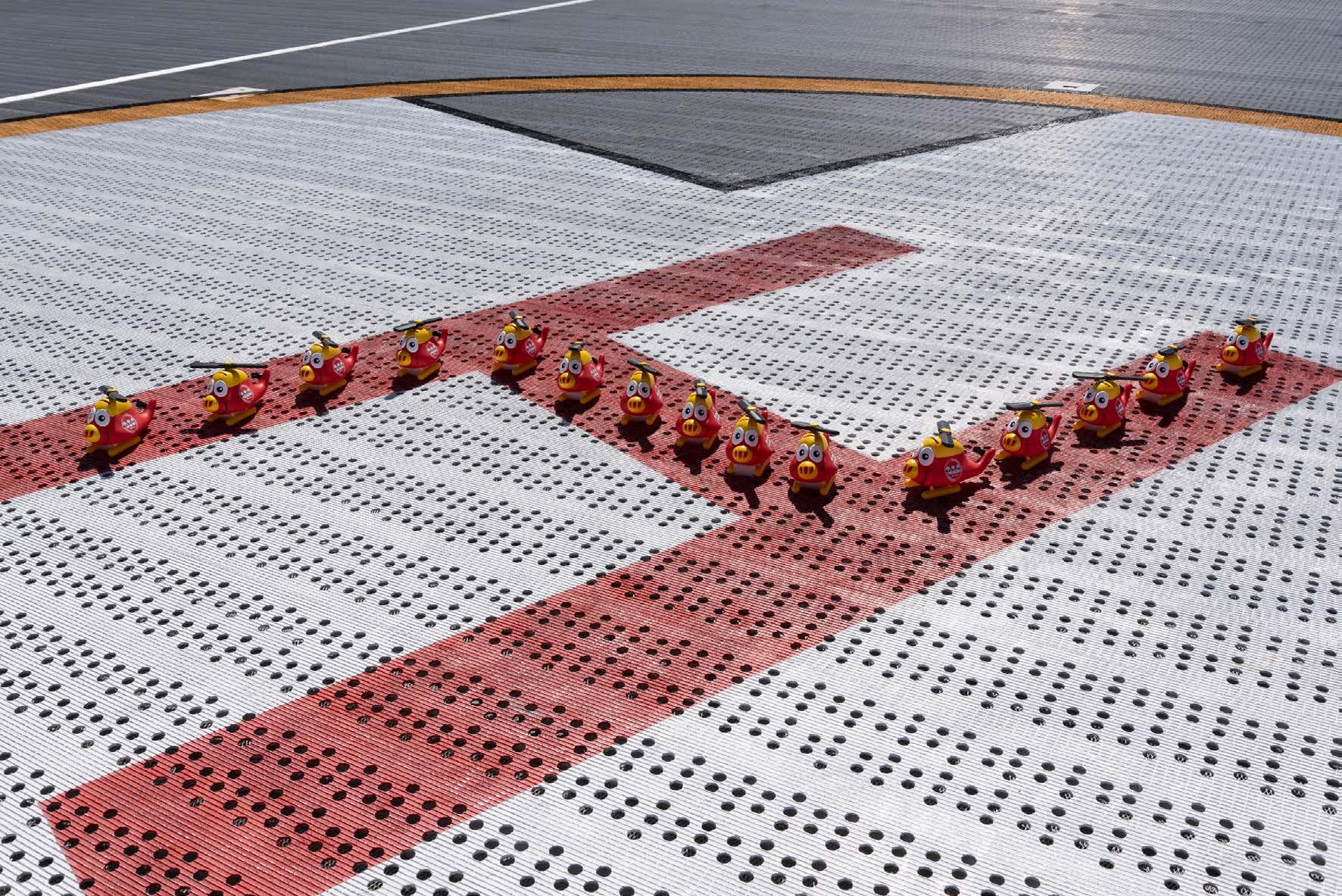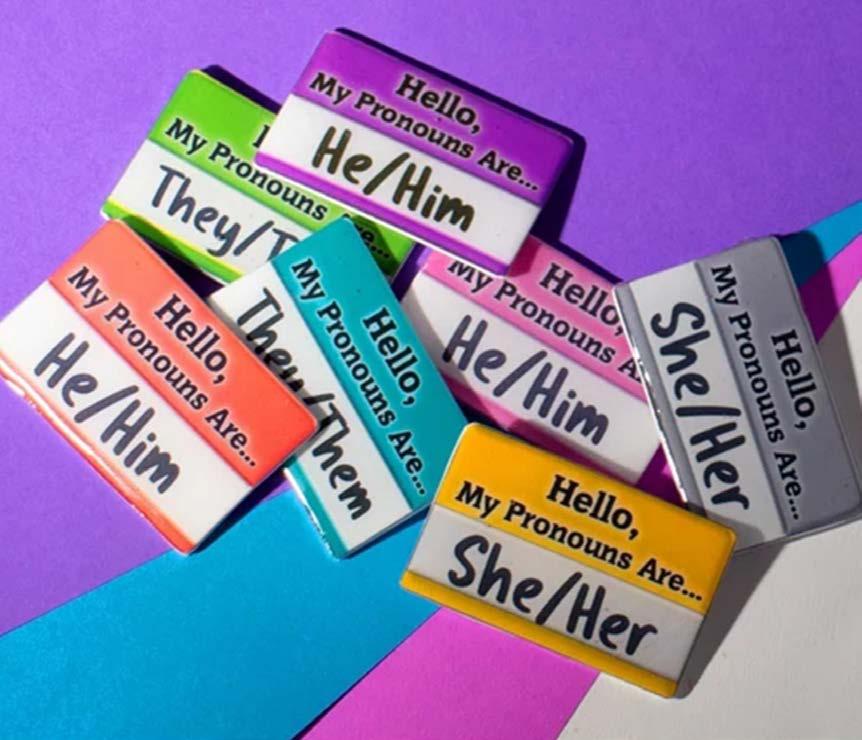
4 minute read
› Moneyboxes chopper in › Using pronoun choice “a sign of respect” ... pg 19
Moneyboxes chopper in
A different type of helicopter was spotted visiting the Christchurch Hospital helipad last week. Instead of the usual metal flying machines with their loud rotor blades carrying precious cargo requiring our care, some cute-faced colourful helicopter moneyboxes tried it out for size. The moneyboxes were donated by Westpac and will be given to child patients who arrive by helicopter. “In the past we’ve given them to children who arrived by air retrieval but may be unconscious on arrival. When they recover the moneyboxes help them recognise how they arrived at hospital,” says Senior Operations Manager George Schwass. “We had some stock of these in the past but hadn't had any for some time so I dropped into the Upper Riccarton Westpac branch to see if there were any we could buy. Customer Service Representative Lynne Knight and her team were amazing and went the extra mile to find some and then to donate them to the hospital rather than have us purchase them.
Advertisement
“I’d like to thank Lynne, her team and the branch for their generosity with this very kind donation. The moneyboxes will go to the Child Health division for appropriate distribution to children who have used the service,” he says. Lynne says, “We didn’t want to charge for these as this is such a lovely gesture for the children. We were just happy to help.”

Photo by Bob Ashford, Medical Illustrations

Using pronoun choice “a sign of respect”
Wednesday 19 October marks International Pronouns Day which aims to bring awareness to respecting, sharing and educating about personal pronouns. The use of pronouns is not a new concept, however, as a an evolving diverse community, we have adapted the way we use them, says Mana Taurite | Equity, Diversity and Inclusion Workforce Development Partner Akira Le Fevre (he/him). “As the world evolves, along with our diverse cultures, beliefs and values so must our language.” Most people have grown up knowing the two binary pronouns - he/him or she/her and in te reo Māori there is just one pronoun ‘ia’. “Many of us are comfortable using the pronouns he/ him or she/her but for many of our transgender or non-binary communities these pronouns come with a lot of pressure and stereotypes from society. They don’t feel comfortable using those binary pronouns, which is why some, but not all, may choose to use the pronouns they/them.” When we use someone's correct pronouns, it creates a sense of comfort and empowerment, helping them feel secure and safe within their gender identity. It’s validating, a sign of respect, and reaffirms identity, Akira says. “Studies have shown that correct pronoun use reduces the feelings of depression or dysphoria in gender-diverse communities. The simple act of using someones chosen pronouns can be both life changing and life-saving.” Getting someone’s pronouns correct is the same as pronouncing someone’s name correctly. In a recent ‘Counting Ourselves Survey’ studies showed that over a third (36 percent) of trans or nonbinary participants had avoided seeing a doctor because they were worried about disrespect or mistreatment.
“We can remove this barrier with the small and simple act of using a person’s chosen pronoun. One of the easiest tools we can use to create a safe and inclusive environment is by adding our own pronouns to our email signature or name badge. This demonstrates to our diverse communities that we are a safe person, that they can be open with us about their identity and in turn we can help create better health outcomes together. “We know that change can be a bit of a journey to get our heads around, our trans and non-binary communities understand that we may not always get it right. It’s okay to get things wrong, the most important thing is to not make a big deal of it, simply apologise and keep trying. “You will find that most people will be more than happy to have a kōrero about their identity, as long as we are being positively curious. At the end of the day, it is about listening and following the lead of the person we are working with. For more resources and information around pronouns view a video from one of our kaimahi (staff) explaning why they use non-binary pronouns here, a great guide from Pride Pledge as well as an article on why pronouns are important. If you need more support around pronouns or the rainbow diverse communities, there is a new Rainbow Diversity Workshop which you can register for on HealthLearn here or contact akira.lefevre@ cdhb.health.nz.




